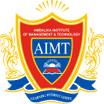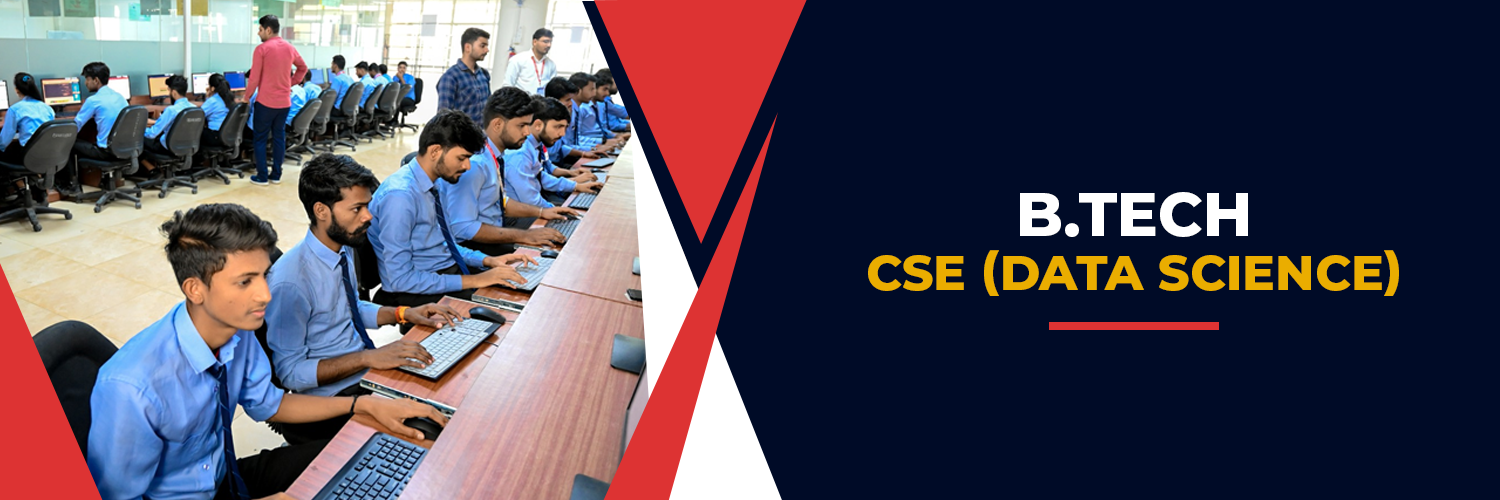![]()
Ambalika Institute of Management and Technology offers B.Tech in Data Sciences program affiliated with Dr. A.P.J. Abdul Kalam Technical University (AKTU), Lucknow. The course duration is 4 years (8 semesters) and it is designed to provide students with a solid foundation in the interdisciplinary field of data science, integrating computer science, statistics, mathematics, and domain-specific knowledge. This program prepares students for careers in data analytics, machine learning, artificial intelligence, and big data technologies.
Program Highlights:
- Industry-Relevant Skills: The program focuses on providing practical knowledge through real-world projects, ensuring that students are ready to tackle challenges in data science. Students are taught to apply techniques such as machine learning algorithms, statistical methods, and data visualization to solve actual business problems.
- Internships and Industry Exposure: AKTU emphasizes industry collaboration, and the program includes opportunities for internships with leading tech companies. These internships give students hands-on experience with large datasets, real-world tools, and cutting-edge technologies. They also allow students to network with industry professionals, which can be beneficial for future job placements.
- Capstone Projects: In the final year, students work on capstone projects, which involve solving industry-specific problems by applying the concepts and tools they have learned throughout the program. These projects help students build a strong portfolio to showcase their skills to potential employers.
- Research Opportunities: The program encourages students to engage in research, particularly in fields such as artificial intelligence, big data analytics, and machine learning. Students may also have opportunities to work alongside faculty on research projects and publish papers in international journals or present at conferences.
- Skill Development: Students will develop a mix of technical and soft skills, including problem-solving, analytical thinking, and communication, which are crucial for data science roles. The program fosters a collaborative learning environment where students work in teams to tackle complex problems.
To summarise, the B.Tech in Data Sciences at Ambalika Institute of Management and Technology is a comprehensive programme that prepares students to meet the growing demand for data professionals in a wide range of industries. By offering a blend of theoretical knowledge, practical skills, and industry exposure, the program ensures that graduates are well-equipped to succeed in the dynamic and competitive field of data science.
Program Educational Outcomes
PEO 1: To prepare our students to find suitable employment commensurate with their qualification.
PEO 2: To create good entrepreneurs who may contribute to the nation building and generate job opportunities for others.
PEO 3: To develop proficiency in students for higher studies and R & D for the solution of complex problems for betterment of the society.
PEO 4: To develop students as responsible citizens with high moral and ethical values who can become asset to a vibrant nation.
Program Outcomes
PO 1: Engineering Knowledge: Apply the knowledge of mathematics, science, engineering fundamentals, and an engineering specialization to the solution of complex engineering problems.
PO 2: Problem Analysis: Identify, formulate, review research literature, and analyze complex engineering problems reaching substantiated conclusions using first principles of mathematics, natural sciences, and engineering sciences.
PO 3: Design/development of solutions: Design solutions for complex engineering problems and design system components or processes that meet the specified needs with appropriate consideration for the public health and safety, and the cultural, societal, and environmental considerations.
PO 4: Conduct investigations of complex problems: Use research-based knowledge and research methods including design of experiments, analysis and interpretation of data, and synthesis of the information to provide valid conclusions
PO 5: Modern tool usage: Create, select, and apply appropriate techniques, resources, and modern engineering and IT tools including prediction and modeling to complex engineering activities with an understanding of the limitations.
PO 6: The engineer and society: Apply reasoning informed by the contextual knowledge to assess societal, health, safety, legal and cultural issues and the consequent responsibilities relevant to the professional engineering practice.
PO 7: Environment and sustainability: Understand the impact of the professional engineering solutions in societal and environmental contexts, and demonstrate the knowledge of, and need for sustainable development.
PO 8: Ethics: Apply ethical principles and commit to professional ethics and responsibilities and norms of the engineering practice
PO 9: Individual and team work: Function effectively as an individual, and as a member or leader in diverse teams, and in multidisciplinary settings.
PO 10: Communication: Communicate effectively on complex engineering activities with the engineering community and with society at large, such as, being able to comprehend and write effective reports and design documentation, make effective presentations, and give and receive clear instructions.
PO 11: Project management and finance: Demonstrate knowledge and understanding of the engineering and management principles and apply these to one’s own work, as a member and leader in a team, to manage projects and in multidisciplinary environments.
PO 12: Life-long learning: Recognize the need for, and have the preparation and ability to engage in independent and life-long learning in the broadest context of technological change.
Program Specific Outcomes
PSO 1: Apply computational, statistical, and machine learning techniques to analyze and interpret complex data, developing innovative solutions for real-world challenges in diverse domains.
PSO 2: Design and implement data-driven systems with ethical considerations, ensuring transparency, fairness, and social responsibility in decision-making processes.
PSO 3: Engage in interdisciplinary research, lifelong learning, and innovative practices to contribute to advancements in Data Science and emerging technologies.


